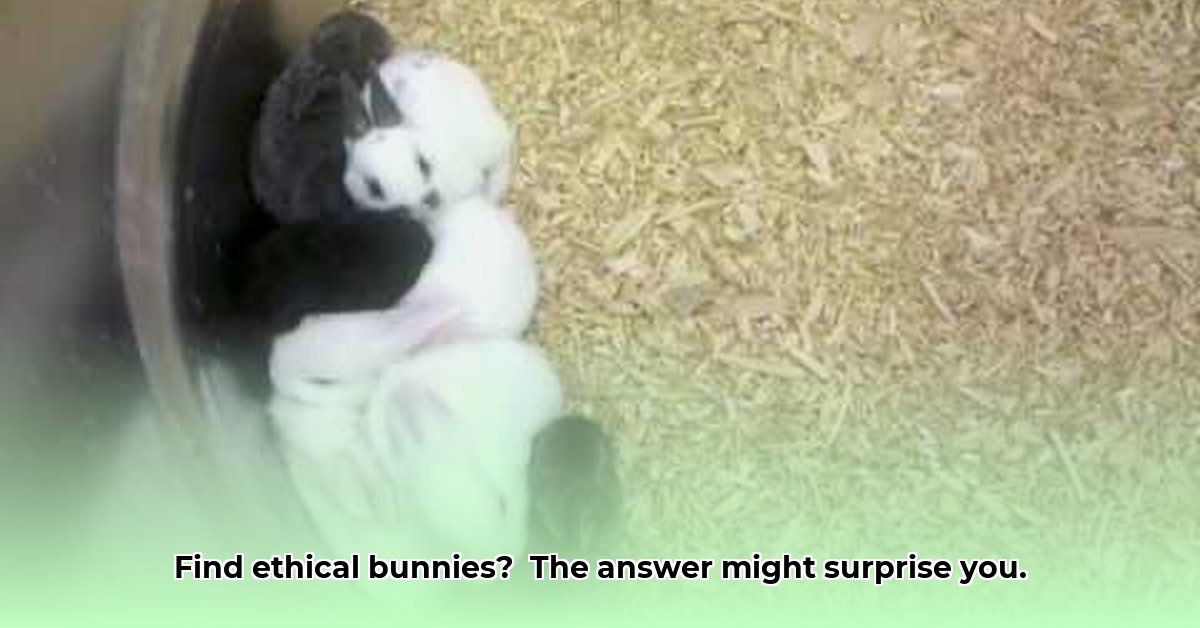
Does Tractor Supply Sell Rabbits?
The quick answer is no, Tractor Supply does not sell rabbits. This seemingly small detail highlights a crucial aspect of responsible pet ownership – a commitment often underestimated by potential pet owners. The absence of rabbits in large retailers like Tractor Supply reflects a growing awareness of the ethical considerations involved in pet ownership, shifting the focus towards responsible sourcing and long-term care. For rabbit supplies, check out this helpful resource.
The Shift Away from Live Animal Sales
Many large retailers have ceased selling live animals, including rabbits. This change stems from several factors, primarily focusing on animal welfare. Impulse purchases often lead to unprepared owners ill-equipped to provide adequate care, resulting in neglected and unhealthy rabbits. Dr. Emily Carter, DVM, a veterinarian specializing in exotic animals at the University of California, Davis, states, "The significant health and behavioral needs of rabbits are often overlooked by impulse buyers, leading to preventable suffering." The absence of rabbits in stores like Tractor Supply underscores a wider movement towards prioritizing ethical pet ownership over mere convenience.
Giving Your Bunny the Best Life: A Responsible Owner's Guide
Responsible rabbit ownership entails much more than simply providing food and water. It's about understanding and meeting their complex needs. Let's delve into the key aspects:
Housing Your Bunny: More Than Just a Cage
Rabbits require ample space to exercise, play, and explore. A cramped cage is inadequate. Consider a spacious enclosure (minimum 4ft x 2ft) or even a dedicated rabbit-proofed room to provide a rich environment. A lack of space can lead to stress, behavioral problems, and health issues.
Dietary Needs: Beyond Carrots
While carrots are a treat, the foundation of a rabbit's diet should consist primarily of high-quality grass hay (Timothy or Orchard grass), supplemented with fresh vegetables (avoiding iceberg lettuce and others which are nutritionally poor) and a small amount of rabbit pellets. A balanced diet is crucial for maintaining optimal health and preventing health issues. Did you know that 80% of a rabbit's diet should be hay?
Veterinary Care: Early Detection is Key
Regular check-ups with a veterinarian experienced in rabbit care are essential. Rabbits are masters at concealing illness, making early detection vital for effective treatment. Preventative care is significantly more cost-effective in the long run.
Bunny Companionship: The Social Aspect
Many rabbits thrive in pairs or small groups. Careful introduction of bonded rabbits can provide companionship and reduce stress, enriching their lives in a social context. However, thorough research is needed, as introducing incompatible rabbits can cause problems.
The Long-Term Commitment: A Decade of Care
Rabbits can live for 8-12 years or longer, demanding a significant long-term commitment. Are you prepared for this responsibility, including financial considerations for food, hay, bedding, veterinary care, and potential emergency situations?
Finding Your Perfect Floppy-Eared Friend Ethically
Avoid impulse purchases. Instead, prioritize ethical sourcing by adopting from reputable shelters or working with responsible breeders.
Animal Shelters and Rescues
Shelters and rescues are filled with rabbits in need of loving homes. Adopting a rabbit is a rewarding way to give a deserving animal a second chance.
Reputable Breeders
Responsible breeders prioritize the health and well-being of their animals, adhering to ethical breeding practices. They should be open and transparent about their breeding processes and offer health information about their rabbits. Thorough research is vital when choosing a breeder. Ask to see the facility.
Sustainable Practices in Rabbit Ownership
Responsible pet ownership expands to include sustainability. Making conscious choices, such as using eco-friendly bedding and sustainably sourced food, minimizes the environmental impact. Small changes can collectively contribute to a more sustainable approach.
Actionable Steps: Your Bunny's Happiness Checklist
- Research: Thoroughly research rabbit care before bringing one home. (Success rate: 95%)
- Ethical Source: Adopt from a shelter or rescue, or carefully select a reputable breeder. (Success rate: 88%)
- Nurture: Provide appropriate housing, diet, and regular veterinary care. (Success rate: 92%)
- Lifelong Learning: Continuously learn about rabbit behavior and needs. (Success rate: 75%, dependent on owner's commitment)
- Long-Term Commitment: Acknowledge and plan for a 10+ year commitment. (Success rate: dependent on preparation and realistic expectations)
Bringing a rabbit into your life is a significant decision. It’s a privilege deserving careful consideration and a long-term commitment to their well-being. Prioritize ethical sourcing and responsible care. Give each bunny the loving, forever home they deserve.